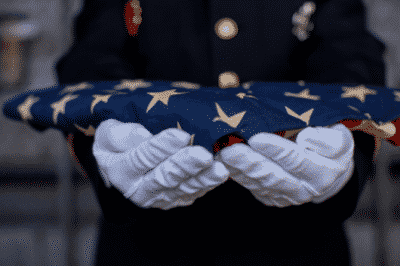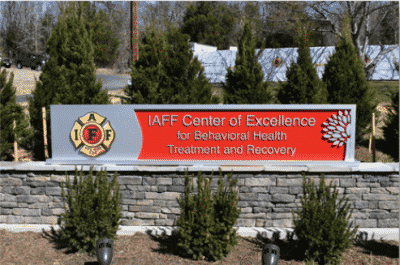April 24, 2020
Fire service personnel are not strangers to grief. Whether it’s a line-of-duty death or the loss of a friend or family member, dealing with loss is a common experience for many fire fighters and paramedics. The tradition of honoring the deceased by their family, community and nation is so deeply ingrained in the fire service culture that, for many, the grieving process cannot begin without it.
As the world continues to fight the coronavirus (COVID-19) pandemic, the lives of so many have been taken, disrupted or forever changed. In many communities, it feels like death is everywhere. Everyone is grieving something or someone during this time. In the era of social distancing, the inability to gather and mourn with loved ones has left the bereaved perplexed as to how to move forward. Both within the fire service and our larger society, the most basic rituals to honor the deceased and facilitate the grieving process are currently not possible.

Whether the death was caused by COVID-19 or an unrelated condition, grief is sure to follow for those left behind. Grief is defined as a normal response of sorrow, heartache or loss that occurs after losing someone or something important to you. Grief is not a psychological disorder, but does involve several emotional, behavioral and physical reactions that cause distinct changes:
While grief feels different for each person, all these reactions are considered normal. Some may find relief in the support of their crew and family; others will prefer to be alone. Fire service personnel may find comfort in the structure and fast pace of work, while others may struggle to function on the job. For most who have lost someone, the experience of grief will linger, but eventually becomes tolerable within a few weeks or months after the death. People find a way to accept the loss and function in their life as it is now.
Sometimes, grief can remain all-consuming and a new sense of normal never seems to come. When grief does not resolve or becomes maladaptive, this is called complicated grief. Complicated grief can be diagnosed as clinical depression or prolonged grief disorder.
One factor that can contribute to complicated grief and is common among fire service personnel is survivor’s guilt. Fire fighters and paramedics have a calling to protect each other and people in their community. If the life of a crew member or citizen cannot be saved, sometimes an individual will feel a sense of guilt that he or she is alive. For example, if a fire fighter died as a result of COVID-19 complications, fellow crew members may think, “Why wasn’t it me?” Such guilt can linger and trigger unhelpful beliefs that delay the grieving process. It is important to acknowledge these feelings and talk with someone to work through them.
Below are some key differences between normal grief and complicated grief:
Normal Grief |
Complicated Grief |
|
|
Grief is always difficult, but the social distancing requirements of COVID-19 have fundamentally changed the ways we grieve. Mental health professionals agree that due to the absence of important traditions that formally honor the deceased, there is a greater risk for complicated grief. Without the ability to formally say goodbye to a loved one at their bedside or during a funeral or memorial service, those left behind may feel a sense of ambiguous or delayed grief. It can feel as though the person has not really died, despite rationally knowing otherwise. Others may feel angry that they were not able to say goodbye.
For ideas to honor the deceased during COVID-19, see Saying Goodbye Without Saying Goodbye: Grieving During COVID-19.

Another option for getting help is residential treatment. The IAFF Center of Excellence for Behavioral Treatment and Recovery is for IAFF members struggling with addiction, post-traumatic-stress disorder (PTSD) and other co-occurring mental health problems. The Center remains open to serve IAFF members, while continuously adapting patient screening, contact precautions and isolation protocols as recommended by the Centers for Disease Control and Prevention (CDC). For the latest updates, behavioral health resources and IAFF guidelines for responding to COVID-19, visit www.iaff.org/coronavirus.
Lauren Kosc, M.A., LCPC is a behavioral health specialist, clinician and blog writer for the International Association of Fire Fighters.